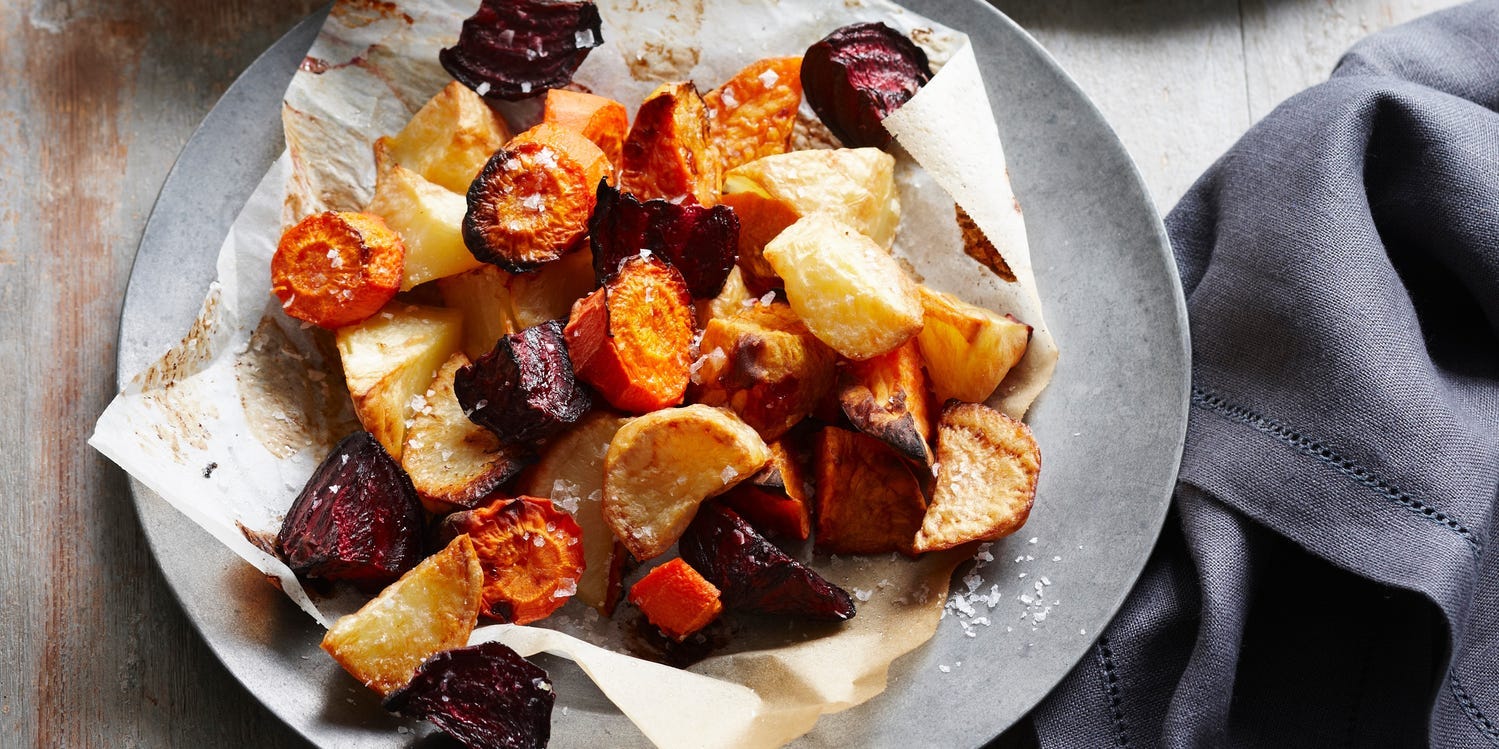
- The endometriosis diet is a type of elimination diet that mainly avoids inflammatory foods.
- Inflammatory foods include red meat, gluten, and FODMAPs.
- It also helps to keep a food journal so you can track what foods might exacerbate your symptoms.
- Visit Insider's Health Reference library for more advice.
Living a healthy lifestyle, taking pain-relief medication like NSAIDs, or in some cases, hormone therapy, and implementing an anti-inflammatory diet, also known as the "endometriosis diet," may relieve endometriosis-related pain and reduce symptoms – though more research is needed to determine how effective diet, alone, can be.
"The endometriosis diet involves limiting certain foods that can exacerbate inflammation and pain," says Tara Scott, MD, and founder of Revitalize Medical Group.
Between 3.8% and 37% of individuals with endometriosis are affected by bowel endometriosis or intestinal endometriosis. "So, by cleaning up your diet, you can clean up your gut," Scott says.
Here are common foods to eat and avoid as well as a 7-day meal plan that may help manage endometriosis-related symptoms.
Endometriosis diet: Foods to eat and avoid
The endometriosis diet involves eating more antioxidant-rich and anti-inflammatory foods and avoiding foods that may cause inflammation.
According to the Endometriosis Foundation of America, the best way to figure out what diet works for you is by listening to your body and recording the foods you eat in a food journal for 14 to 30 days. Be sure to jot down how each food makes you feel. If a specific food causes pain or discomfort, eliminate it from your diet.
It's important to note that everyone is different and what may trigger pain for you may not for another. That said, here are some foods that have been linked to worsening inflammation in those with endometriosis:
- Red meat. According to a 2018 study, red meat consumption - both processed and unprocessed - increases the development and the progression of endometriosis. The study consisted of 81,908 participants, each of whom was asked to fill out a "food frequency questionnaire" every four years between 1991 and 2013. The results confirmed that women with endometriosis who consumed a higher intake of red meat were more likely to experience endometriosis-related pain.
- Gluten. Going on a gluten-free diet may reduce pelvic pain in individuals with endometriosis. A 2013 study examined 207 patients with severe painful endometriosis-related symptoms. Participants were asked to go on a gluten-free diet for one year. The results showed that 156 patients had a significant change in symptoms after removing gluten from their diet.
"The endo diet is really an elimination diet that concentrates on taking away foods that are pro-inflammatory," says Avena-Blanchard. "These foods often contain FODMAPs (fermentable oligosaccharides, disaccharides, monosaccharides, and polyols), which are members of the carbohydrate family and tend to increase inflammation."
Individuals with endometriosis should also avoid foods that can interfere with hormone regulation, promote inflammation, or lead to pain or further progression of the condition.
In addition to the foods listed above, a person with endometriosis should also consider avoiding:
- Dairy
- Alcohol
- Caffeine
- Soy products
- Sugary treats
- Non-organic fruits and vegetables
Seven-day endometriosis-friendly meal plan
"Timed eating can impact a large array of bodily functions, including many issues relating to endometriosis," says Felice Gersh, MD, founder, and director of the Integrative Medical Group of Irvine. "Despite the lack of formal studies specifically involving the treatment of endometriosis, there is scientific data showing benefits of fasting in reducing inflammation and in aiding the body to eliminate unhealthy cells, while rejuvenating healthy ones."
Here's a 7-day meal plan recommended by Gersh that may help to reduce endometriosis-related pain and GI discomfort:
Monday
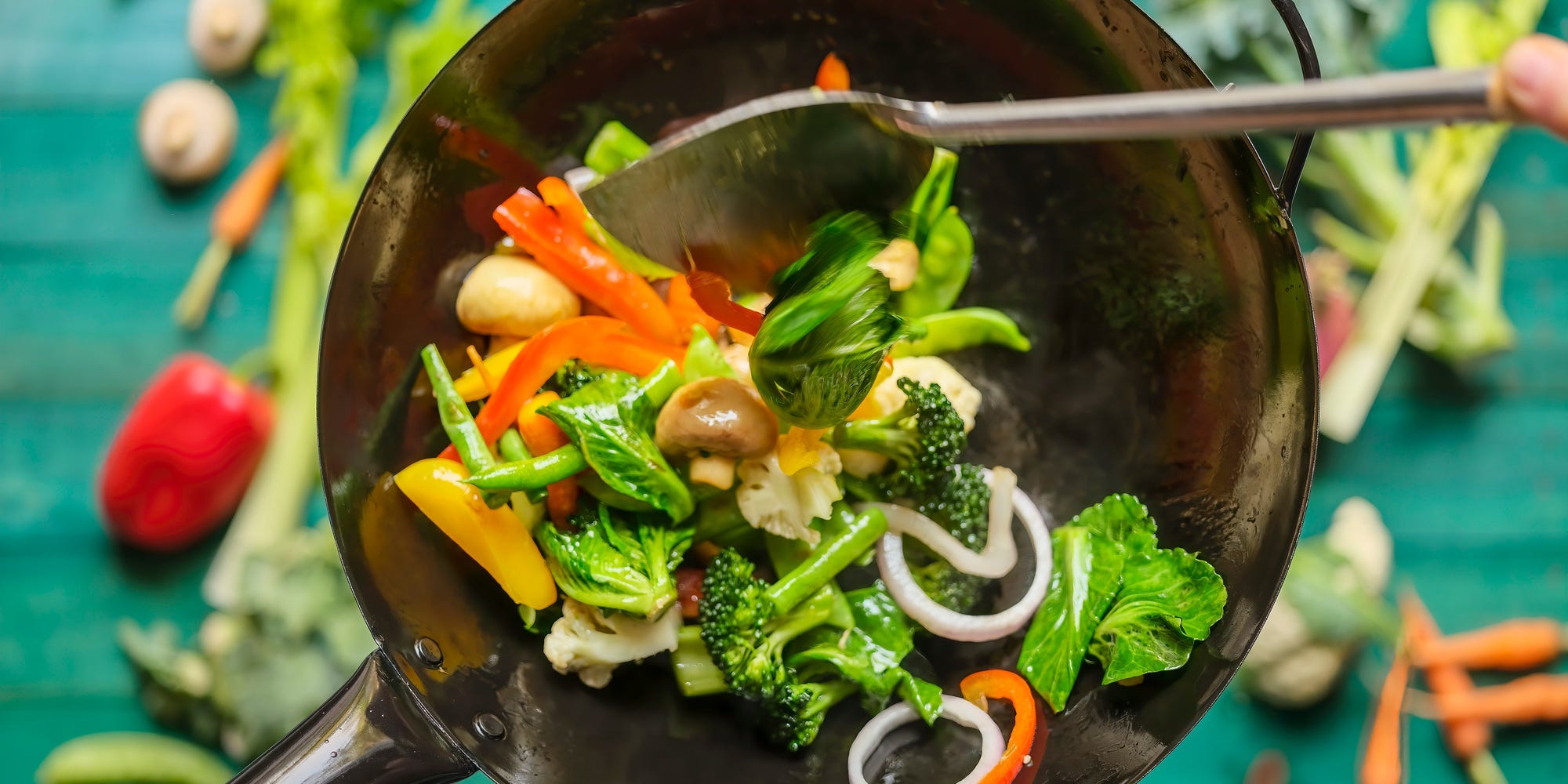
enviromantic/Getty Images
- Breakfast: Mixed vegetable stir fry with organic firm tofu and ½ cup quinoa, a slice of melon, and one cup of an English breakfast tea (~444 calories)
- Lunch: Half an avocado with hummus, and one cup of green tea (~264 calories)
- Dinner: One bowl of chicken soup with vegetables with one cup of basmati rice with organic cassava tortillas, a baked apple with walnuts and raisins and coconut whipped cream, and one cup of camomile tea (~896 calories)
Total for the day: ~1,604 calories
Tuesday
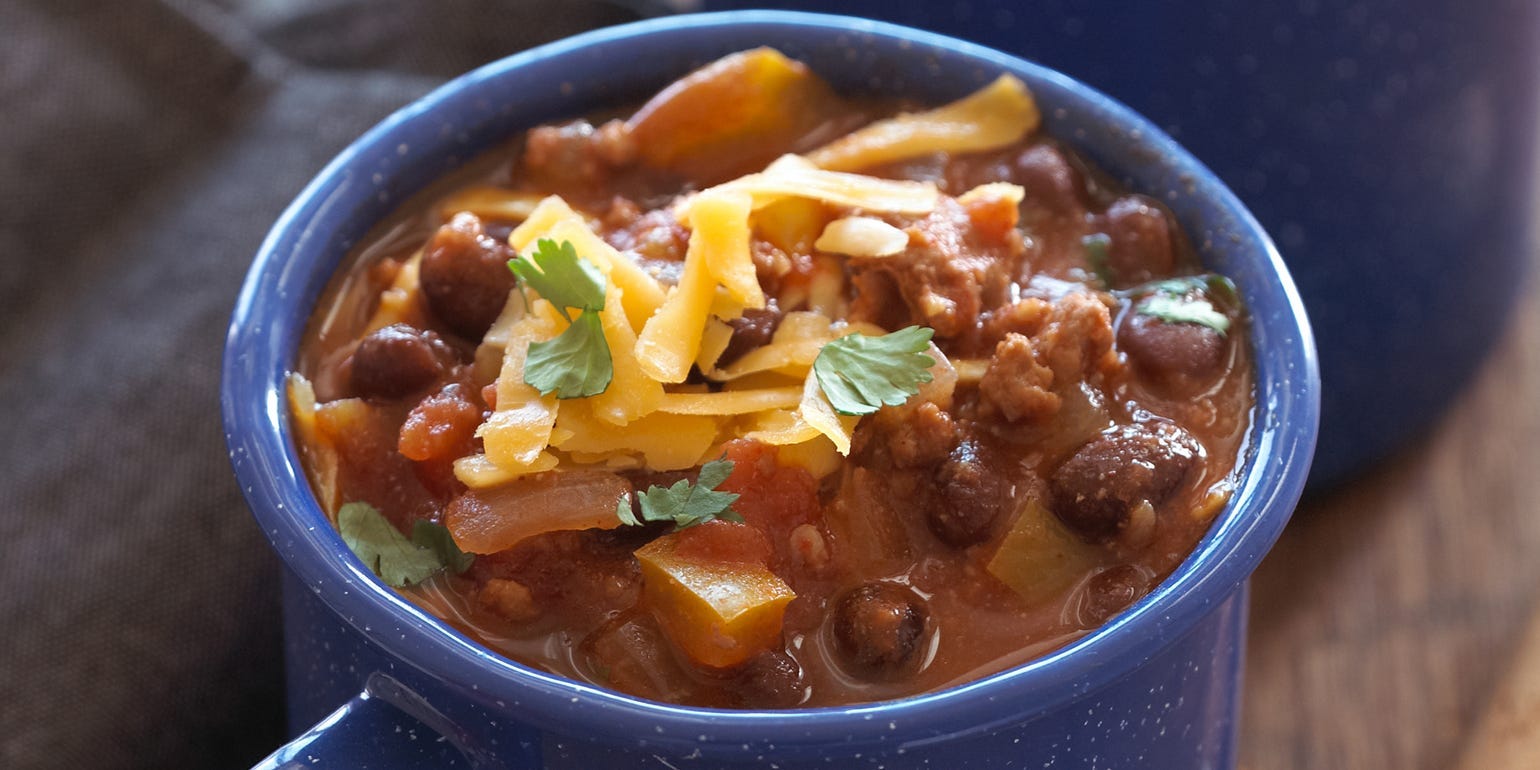
Annabelle Breakey/Getty Images
- Breakfast: One large bowl of millet with nuts, seeds, dates, one cup of organic soy milk, a sliced pear, and one cup of Earl Gray tea (~508 calories)
- Lunch: One hard-boiled egg and a handful of walnuts, mixed greens, and one cup of green tea (~285 calories)
- Dinner: One bowl of vegetarian chili, organic corn tortillas, cashew yogurt, mixed green salad with balsamic dressing, a sliced orange, and one cup of hibiscus tea (~1,081 calories)
Total for the day: ~1,874 calories
Wednesday (modified fast day)
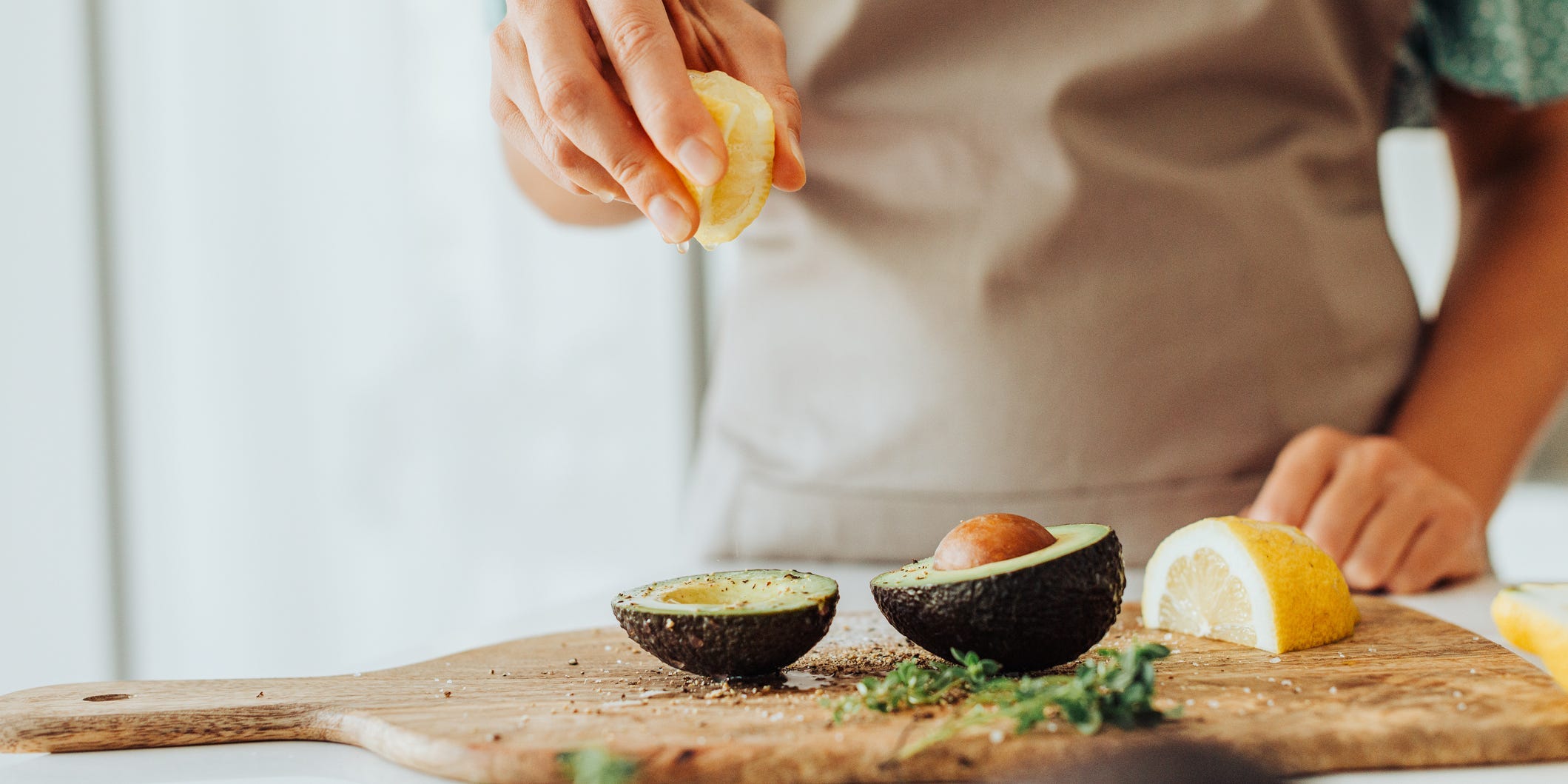
Cavan Images/Getty Images
- Breakfast: Five macadamia nuts (~93 calories)
- Lunch: One-fourth of an avocado (~80 calories)
- Dinner: Six walnut halves and unlimited herbal tea (~78 calories)
Total for the day: ~251 calories
Thursday
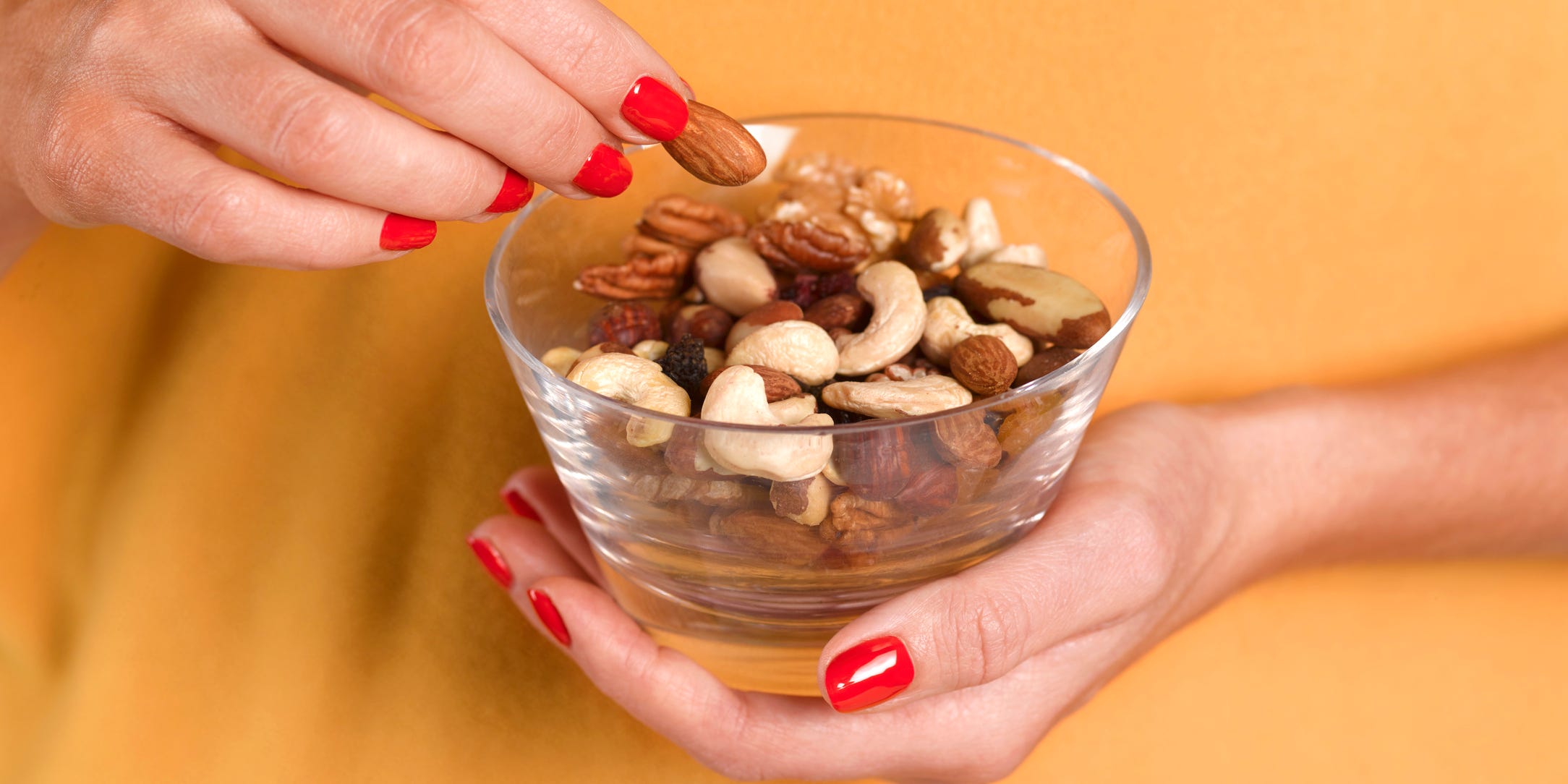
Peter Dazeley/Getty Images
- Breakfast: Scrambled eggs with vegetables stir fry, organic corn tortillas, ½ of a grapefruit, and one cup of black tea (~387 calories)
- Lunch: One baked sweet potato, edamame, mixed raw nuts, and one cup of green tea (~334 calories)
- Dinner: Beyond burger meatballs, gluten-free pasta, tomato sauce, tossed salad, one gluten-free bread slice, sautéed bananas, and one cup of cinnamon tea (~870 calories)
Total for the day: ~1,592 calories
Friday
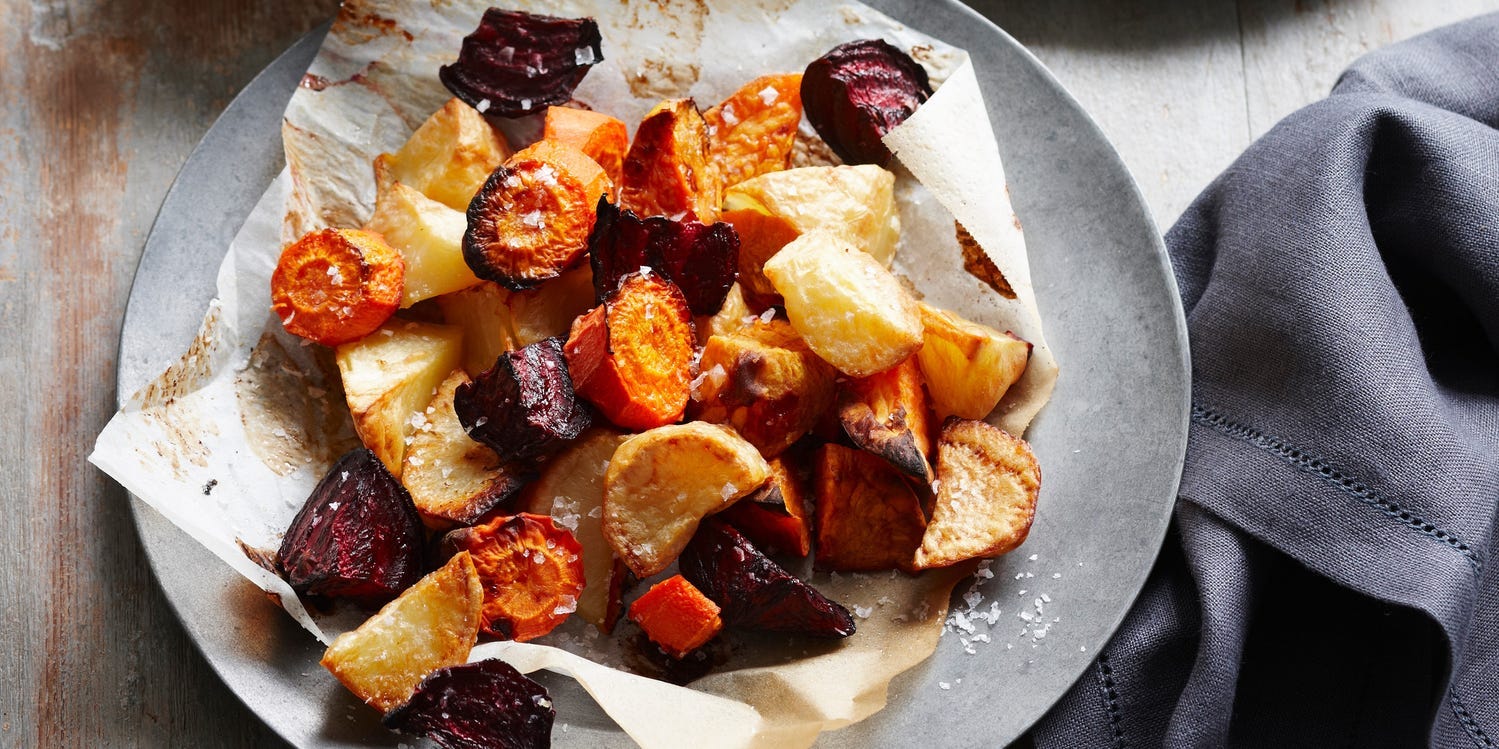
BRETT STEVENS/Getty Images
- Breakfast: One large bowl of buckwheat, varied nuts and seeds, organic almond slivers, sliced mango, organic decaf coffee, and a splash of almond milk (~861 calories)
- Lunch: Small green salad with olives and seeds in olive oil, and one cup of green tea (~281 calories)
- Dinner: Organic wild salmon (baked), broccoli, carrots, beets, roasted potatoes, sautéed pear, and one cup of ginger tea (~843 calories)
Total for the day: ~1,985 calories
Saturday (modified fast day)
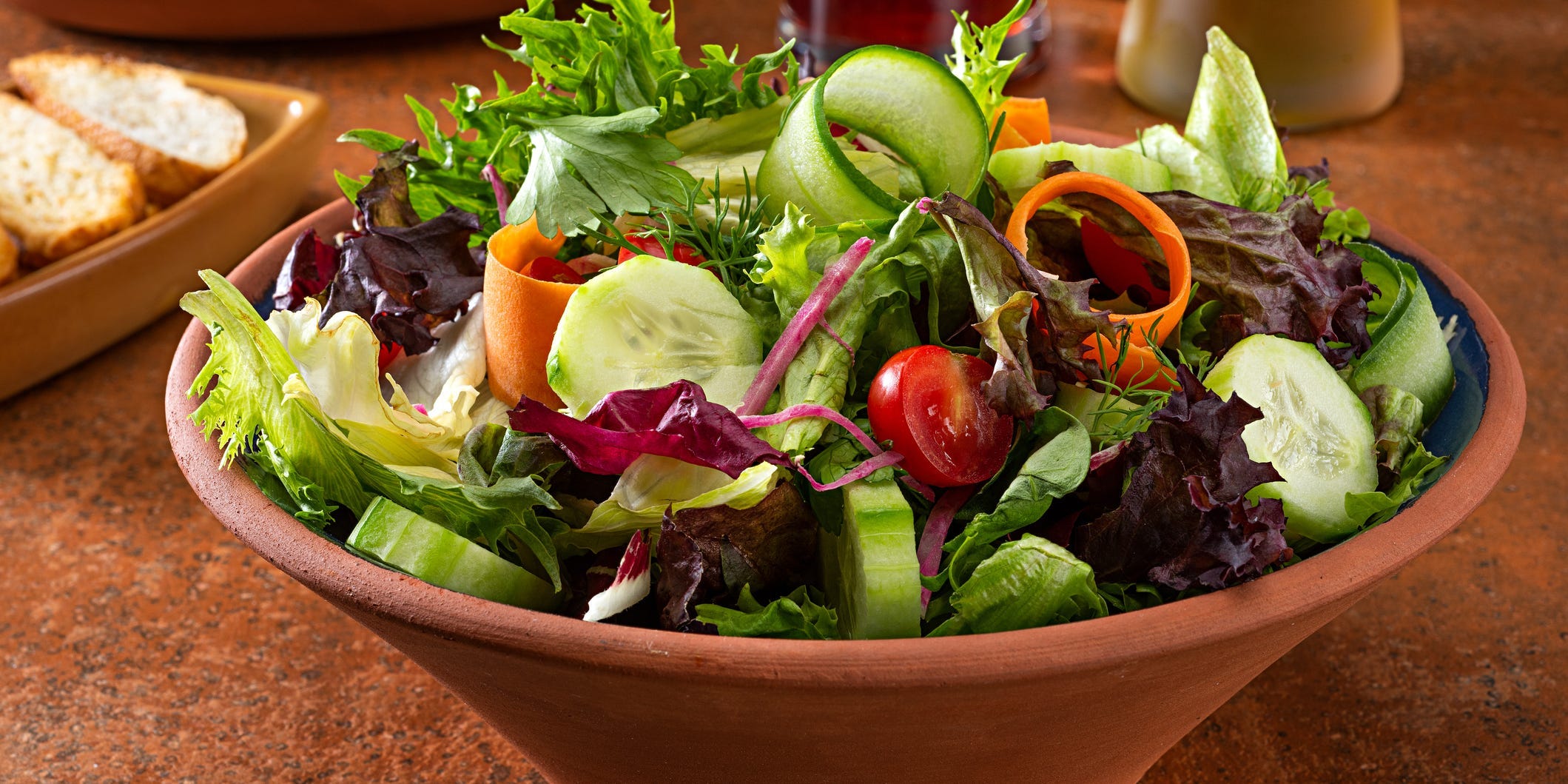
BURCU ATALAY TANKUT/Getty Images
- Breakfast: Six walnut halves and one cup of green tea (~80 calories)
- Lunch: One-fourth of an avocado and one cup of spearmint tea (~80 calories)
- Dinner: Small green salad with olive oil (~140 calories)
Total for the day: ~300 calories
Sunday
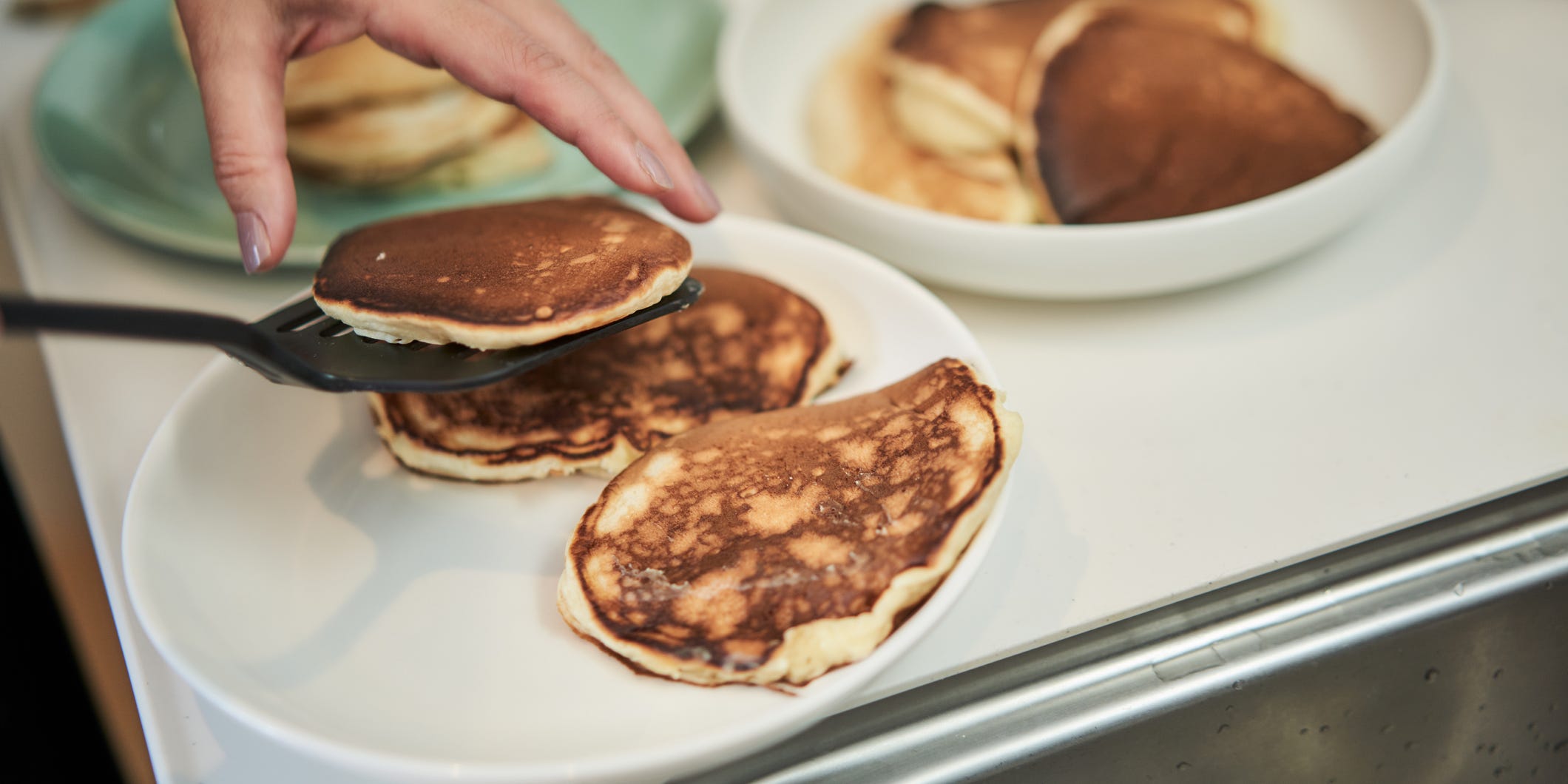
- Breakfast: Gluten-free pancakes with fresh berries, cashew or coconut yogurt, organic decaf coffee, and organic soy milk, fresh orange slices (~636 calories)
- Lunch: Celery and apple slices with almond butter (~162 calories)
- Dinner: Tossed salad and balsamic dressing, grilled prawns on basmati rice, ratatouille, sliced papaya, mango, and one cup of rooibos tea (~728 calories)
Total for the day: ~1,526 calories
Insider's takeaway
No diet can cure or prevent endometriosis, but eating certain foods and avoiding inflammatory and high FODMAP foods may help decrease the severity of your symptoms.
Because endometriosis affects each person differently, any meal plan needs to be altered based on your symptoms and specific dietary needs. Remember to consult your doctor before limiting your calorie intake or eliminating certain foods from your diet.
"Because endometriosis is also an estrogen-dependent condition, strategies also include increasing the consumption of foods like cruciferous vegetables and soluble fiber that support hormonal balance and avoiding the dirty dozen produce items that have high levels of disruptive pesticides," says Robin Miller, RD, and nutritionist.